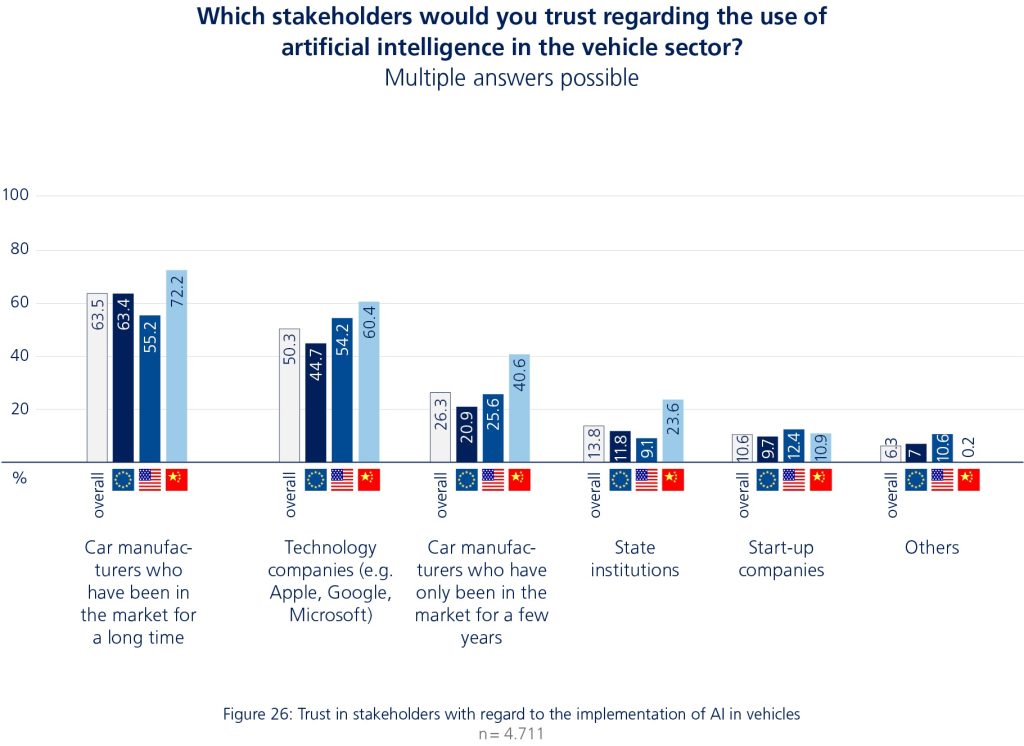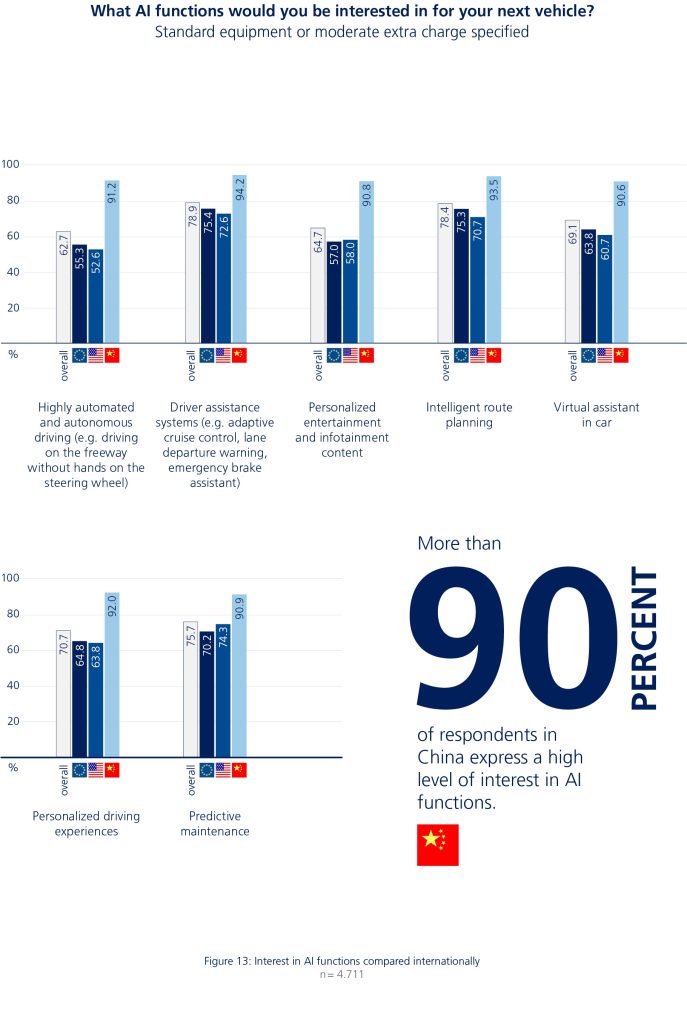A global study has unveiled a stark contrast in attitudes towards embracing in-vehicle AI between Eastern and Western markets, with European drivers particularly reluctant.
The research – conducted by MHP – surveyed 4,700 car drivers across China, the US, Germany, the UK, Italy, Sweden, and Poland, revealing significant geographical disparities in AI acceptance and understanding.
According to the study, while AI is becoming integral to modern vehicles, European consumers remain hesitant about its implementation and value proposition.
Regional disparities
The study found that 48 percent of Chinese respondents view in-car AI predominantly as an opportunity, while merely 23 percent of European respondents share this optimistic outlook. In Europe, 39 percent believe AI’s opportunities and risks are broadly balanced, while 24 percent take a negative stance, suggesting the risks outweigh potential benefits.
Understanding of AI technology also varies significantly by region. While over 80 percent of Chinese respondents claim to understand AI’s use in cars, this figure drops to just 54 percent among European drivers, highlighting a notable knowledge gap.
Marcus Willand, Partner at MHP and one of the study’s authors, notes: “The figures show that the prospect of greater safety and comfort due to AI can motivate purchasing decisions. However, the European respondents in particular are often hesitant and price-sensitive.”
The willingness to pay for AI features shows an equally stark divide. Just 23 percent of European drivers expressed willingness to pay for AI functions, compared to 39 percent of Chinese drivers. The study suggests that most users now expect AI features to be standard rather than optional extras.
Dr Nils Schaupensteiner, Associated Partner at MHP and study co-author, said: “Automotive companies need to create innovations with clear added value and develop both direct and indirect monetisation of their AI offerings, for example through data-based business models and improved services.”
In-vehicle AI opportunities
Despite these challenges, traditional automotive manufacturers maintain a trust advantage over tech giants. The study reveals that 64 percent of customers trust established car manufacturers with AI implementation, compared to 50 percent for technology firms like Apple, Google, and Microsoft.

The research identified several key areas where AI could provide significant value across the automotive industry’s value chain, including pattern recognition for quality management, enhanced data management capabilities, AI-driven decision-making systems, and improved customer service through AI-powered communication tools.
“It is worth OEMs and suppliers considering the opportunities offered by the new technology along their entire value chain,” explains Augustin Friedel, Senior Manager and study co-author. “However, the possible uses are diverse and implementation is quite complex.”
The study reveals that while up to 79 percent of respondents express interest in AI-powered features such as driver assistance systems, intelligent route planning, and predictive maintenance, manufacturers face significant challenges in monetising these capabilities, particularly in the European market.

See also: MIT breakthrough could transform robot training

Want to learn more about AI and big data from industry leaders? Check out AI & Big Data Expo taking place in Amsterdam, California, and London. The comprehensive event is co-located with other leading events including Intelligent Automation Conference, BlockX, Digital Transformation Week, and Cyber Security & Cloud Expo.
Explore other upcoming enterprise technology events and webinars powered by TechForge here.
Read the full article here














